Table of Contents
In the complex and rapidly evolving logistics domain, the advent of centralized logistics delivery management software has been a game changer. These advanced systems serve as the nerve center for delivery operations, coordinating various tasks with precision and agility. By integrating such software into their modus operandi, businesses can unlock unprecedented efficiency, visibility, and reliability levels in their delivery processes. With the capability to streamline every link in the supply chain, from order tracking to dispatch and beyond, a robust logistics management solution is not just an option but a necessity for companies looking to thrive in the competitive modern marketplace.
Key Features of an Effective Logistics Delivery Management Solution
The landscape of logistics delivery management is constantly evolving, as are the mechanisms businesses use to streamline their operations. Effective logistics delivery management software is vital to success in this dynamic environment. Here are the must-have features that set apart a superior solution.
Real-Time Tracking and Visibility
Real-time tracking capabilities ensure businesses have visibility over the entire delivery process. This allows for accurate delivery time estimations and helps quickly address any issues.
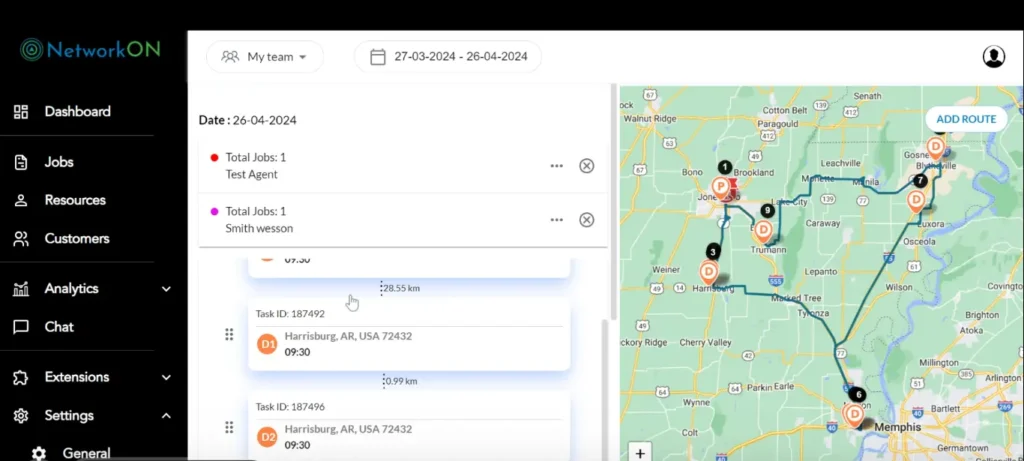
Route Planning and Optimization
Advanced route planning and optimization are crucial for minimizing delays and maximizing efficiency. This feature adapts to traffic conditions, driver availability, and delivery windows to determine the most efficient routes.
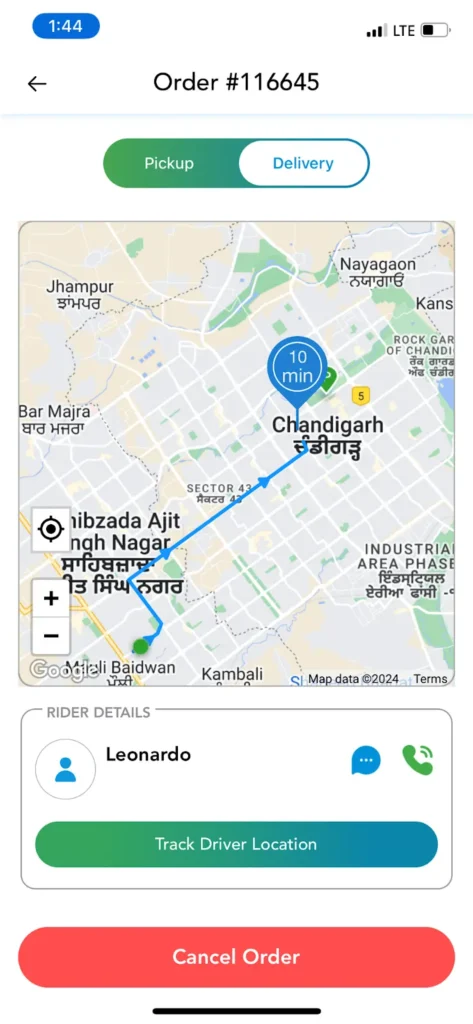
Order Management and Fulfillment
An efficient system incorporates comprehensive order management and fulfillment processes to ensure that orders are processed and allocated correctly, resulting in timely deliveries and high customer satisfaction.
Analytics and Reporting
Detailed analytics and reporting tools are essential for understanding performance metrics and making data-driven decisions to optimize delivery operations further.
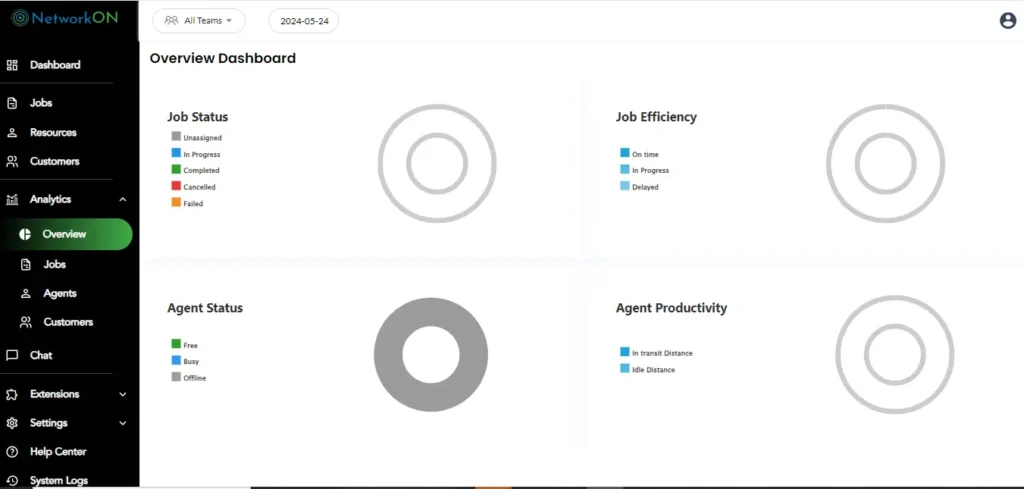
Compliance and Security in Logistics Software
Ensuring compliance and security is non-negotiable. Your chosen software should adhere to industry regulations and protect sensitive data against breaches.
Fleet Management
Fleet management functionality enables effective monitoring and maintenance of delivery vehicles to ensure reliability and reduce downtime.
- Track vehicle health and maintenance schedules.
- Manage fuel consumption and vehicle tracking.
- Streamline driver assignments and logs.
Inventory Management: The Backbone of Logistics Efficiency
Logistics delivery management software empowers businesses to maintain optimal inventory levels. Effective inventory management is integral to the success of supply chains, as it ensures that goods are available when needed without tying up too much capital in stock. By leveraging the data-driven capabilities of logistics software, companies can prevent overstocking and stockouts, thereby reducing warehousing costs and maintaining customer satisfaction.
Automation in Supply Chain Processes
One of the key benefits of utilizing logistics delivery management software is the automation of supply chain processes. Automation helps eliminate human error in inventory tracking and order fulfillment, resulting in more accurate stock levels and smooth operations. Advanced analytics tools within the software forecast demand and adjust inventory accordingly, while real-time tracking allows for proactive management of the entire inventory lifecycle—from procurement to sale.
- Automated reorder points to prevent stockouts and reduce excess inventory.
- Barcode scanning for fast and accurate item tracking.
- Integration with suppliers for streamlined restocking processes.
- Real-time alerts to notify managers of low inventory or high-demand items.
Implementing logistics delivery management software optimizes inventory management and is essential for staying competitive in today’s fast-paced market. By embracing automation, businesses can ensure that their supply chain processes are as efficient and error-free as possible.
Enhancing the Supply Chain with Logistics Software
Embracing logistics delivery management software opens a new realm of possibilities for supply chain optimization. This sophisticated technology fosters a harmonious integration of various logistical components, leading to a streamlined, efficient, and responsive supply chain. When businesses leverage the full potential of these tools, the advantages become palpable across the entire value chain.
Supply Chain Optimization through Integrated Software Approaches
Integrated software solutions offer a holistic approach to managing the supply chain by connecting disparate elements of the logistics process. Effective synchronization of data and activities promotes improved inventory accuracy, better demand forecasting, and reduced redundant tasks. These systems are designed to enhance operational efficiency and provide strategic insights to drive long-term growth and adaptability.
Collaboration Tools within the Supply Chain Management
The key to the success of any supply chain is seamless collaboration between stakeholders. Logistics delivery management software provides collaboration tools that facilitate real-time communication and data sharing among manufacturers, suppliers, distributors, and retailers. Transparent workflows and joint planning capabilities allow for a more cohesive and agile supply chain, enabling partners to respond promptly to demand or supply conditions changes.
- Centralized Data Hub: A unified platform where all relevant supply chain data is collected, analyzed, and shared fosters informed decision-making across all levels.
- Vendor Management: Establish and maintain productive vendor relationships through comprehensive performance monitoring and streamlined communication tools.
- Customer Relationship Management (CRM): By having a clearer view of the supply chain, businesses can offer better customer service and enhance the overall customer experience.
Logistics delivery management software elevates supply chains’ capacity to perform at peak efficiency, adapt to market demands, and innovate continuously. As an authoritative piece of the logistics technology stack, such software is indispensable for modern enterprises looking to secure a competitive edge in an increasingly complex and dynamic marketplace.
The Impact of Real-Time Data on Delivery
The advent of logistics delivery management software has transformed the way businesses handle their delivery operations. One of the most critical aspects that has revolutionized delivery is real-time data. Real-time data accessibility is an indispensable tool in the modern logistics landscape, providing a competitive edge to those who harness it effectively.
Benefits of Real-Time Tracking and Visibility for Businesses
Real-time tracking and visibility empower businesses to make informed decisions swiftly. This feature:
- Enhances operational efficiency by allowing logistics managers to monitor and optimize delivery routes.
- Reduces the risk of delays by providing immediate updates that can help mitigate potential issues in transit.
- Improves customer satisfaction by offering transparent delivery estimates and the ability to track orders in real-time.
- Strengthens accountability throughout the supply chain by providing verifiable data on the movement of goods.
Providing Customer Insights for Improved Service Delivery
Real-time data doesn’t just improve the physical aspect of delivery; it also offers businesses valuable insights into customer behavior and expectations. This insight enables companies to:
- Customize delivery services to meet customer preferences, providing a personalized experience.
- Proactively address customer concerns by analyzing data trends and feedback.
- Continuously improve service delivery by using real-time feedback to refine processes and protocols.
- Maximize customer retention by demonstrating reliability and responsiveness.
Utilizing logistics delivery management software equipped with real-time data capabilities is not a luxury but a necessity for any logistics operation seeking to excel in the fast-paced, customer-centric delivery world.
The Importance of Efficient Route Planning
Efficient route planning is a pivotal component of modern logistics delivery management software. It is critical in ensuring timely deliveries, reducing costs, and improving overall service quality. With proper route planning and optimization, logistics companies can gain a significant competitive edge by conserving resources and enhancing customer satisfaction.
How Route Planning and Optimization Conserves Resources
Route optimization is designed to identify the most efficient path for delivery vehicles to take when transporting goods. By minimizing unnecessary miles, companies can reduce fuel consumption, lower emissions, and extend the life of their vehicle fleet. Moreover, it can help reduce vehicle wear and tear and decrease personnel costs by requiring fewer drivers on the road for shorter periods.
Technology and Its Role in Finding the Most Efficient Routes
Modern logistics software leverages advanced algorithms and real-time data to calculate the best possible routes. This technology considers many factors, such as traffic conditions, delivery windows, and vehicle capacity constraints. By utilizing GPS tracking and geospatial data, delivery management systems can dynamically adjust routes on the fly to account for unexpected roadblocks or delays, ensuring that drivers remain on the quickest path to their destinations.
- Real-time adjustments: Technology enables the system to react instantaneously to road conditions and traffic patterns, optimizing routes as conditions change.
- Data analysis: Historical data analysis aids in predicting future traffic trends and planning routes accordingly, which helps avoid habitual congestion areas.
- Driver support: Drivers are supported with turn-by-turn navigation and alerts, promoting safety and efficiency on the road.
Comprehensive Fleet Management within Logistics Platforms
Fleet management is a cornerstone of logistics delivery management software and is crucial to the success of any logistics operation. With the seamless integration of fleet tracking and comprehensive management tools, logistics companies can unlock previously unattainable levels of efficiency and cost savings. Let’s explore the must-have fleet management features and how they propel logistics companies in a competitive market.
How Logistic Companies Benefit from Fleet Tracking and Management
The integration of fleet tracking and management tools within a logistics delivery management software extends multiple benefits, including:
- Enhanced Efficiency: Companies can maximize fleet utilization by optimizing routes and reducing idle times.
- Cost Reduction: Strategic insights lead to better fuel management and reduced maintenance costs.
- Improved Accountability: Tracking driver behavior and vehicle usage promotes compliance and accountability.
- Proactive Maintenance: Keep your fleet in optimal condition with scheduled alerts and maintenance checks.
- Better Customer Service: Accurate ETAs and real-time tracking ensure customer satisfaction and trust.
Fleet management is not merely about maintaining vehicles; it’s about nurturing a data-driven ecosystem that thrives on constant improvement and superior control over every asset within a logistics operation.
Seamless Order Management and Fulfillment
Streamlining the order-to-delivery pipeline is critical to any logistics delivery management software. Efficient order management ensures consistent customer satisfaction and guarantees optimal resource utilization. A sophisticated software solution easily handles this process’s complexity, transforming a traditionally convoluted task into a smooth, reliable system.
Streamlining the Order-to-Delivery Pipeline with Software Solutions
Logistics delivery management software is the backbone of an effective order fulfillment strategy. By automating key processes, such as order entry, processing, and dispatching, businesses can minimize errors and reduce the time from order to delivery. This optimized pipeline accelerates the entire cycle, essential in today’s fast-paced market, where customers expect rapid service and delivery.
Integration with Third-Party Logistics (3PL) for Expanded Capabilities
Integrating third-party logistics providers (3PL) into your logistics software can significantly expand your capabilities in an era where flexibility and scalability are paramount. This collaboration extends your reach beyond traditional boundaries and adds layers of expertise and efficiency to your operations. Logistics delivery management software with 3PL integration ensures that businesses can adapt to fluctuating demand and access a broader suite of services, from warehousing to international shipping, without the need to manage every detail directly.
- Automated Order Processing: Enhance accuracy and speed up transaction times.
- Real-time Tracking: Keep a pulse on every order’s progress, ensuring transparency and accountability.
- Enhanced Communication: Automatically notify stakeholders at crucial fulfillment stages.
- 3PL Integration: Seamlessly connect with a network of logistics providers for comprehensive service offerings.
Advanced Warehouse Management Features
Logistics delivery management software is pivotal in revolutionizing warehouse operations. Warehouse efficiency is at the heart of logistics, impacting speed, accuracy, and customer satisfaction. Advanced features within logistics software are bridging the gap between traditional practices and modern, streamlined operations.
Automation in Warehouse Operations
Automation is transforming the landscape of warehouse management. By integrating logistics software, businesses can minimize manual intervention, reduce errors, and speed up processes. Features like automated picking, packing, and sorting systems expedite workflows and ensure precision in tasks prone to human error.
Machine Learning for Predictive Analytics
Introducing machine learning capabilities takes logistics software to a new height. These systems can now predict trends, understand demand patterns, and assist in making proactive decisions to manage stock levels and warehouse resources effectively.
- Inventory Forecasting: Software with machine learning algorithms analyzes historical data to predict future inventory requirements, enabling better stock control and reducing the risk of over or under-stocking.
- Demand Planning: By understanding the ebb and flow of product demand, logistics platforms can optimize space utilization and staff allocation, ensuring warehouses are prepared for peak and quiet periods.
- Adaptive Learning: Over time, these advanced systems learn and adapt to the operations of the warehouse, continuously improving efficiency by suggesting route optimizations within the warehouse, best picking methods, and more.
In logistics delivery management software, the advanced features of warehouse management are not a luxury but a necessity for those seeking to gain a competitive edge and cater to the rapidly evolving market demands. Embracing these technologies positions businesses to manage their warehouse operations with superior efficiency and scale their logistics in line with growth.
Perfecting Customer Service Through Technology
Enhancing Customer Service and Experience via logistics platforms is pivotal in today’s fast-paced market. Logistics delivery management software is crucial in ensuring customer satisfaction by streamlining communication and providing accurate, real-time updates. By integrating advanced technology, businesses can expect to meet and exceed customer expectations.
Utilizing software for improved customer communication and satisfaction is no longer a luxury; it’s a necessity. Quick response times, informative tracking, and efficient issue resolution are all aspects of customer service that can be enhanced through sophisticated logistics delivery management software. This technology allows service agents to provide the exact status of deliveries, predict potential issues, and proactively address them, thus fostering a sense of trust and reliability among customers.
- Automated notifications and alerts keep customers informed at every stage of the delivery process.
- Customizable communication templates ensure messages are both personal and relevant.
- Real-time tracking features let customers monitor their orders, providing transparency and control.
- Data analytics offer insights into customer preferences and delivery performance, allowing continuous improvement.
Handling Returns Smartly with Return Management and Reverse Logistics
Return management and reverse logistics are critical aspects of modern logistics delivery management software. They ensure customer satisfaction and cost efficiency. A seamless returns process can significantly enhance consumer loyalty and provide a competitive edge in the fast-paced world of e-commerce.
Software Solutions in Facilitating Simpler and Cost-Effective Returns
Logistics delivery management software is indispensable in enhancing the efficiency of return processes. Such platforms empower businesses to handle returns with greater accuracy and resourcefully manage reverse logistics, resulting in operational cost savings and improved consumer trust. Key features of these software solutions include:
- Centralized Returns Management: A single platform to monitor and process all return requests, ensuring no detail is overlooked.
- Automated Return Labels: Instant return labels are generated, reducing customers’ waiting time and helping companies manage inbound logistics.
- Real-Time Data Analytics: Tracking returned items and analyzing return trends to inform business strategies and reduce future return rates.
- Integrated Refund Systems: Facilitate quicker customer refunds or exchanges in sync with the receipt and assessment of the returned goods.
Reporting and Business Analytics: The Game Changers
In the dynamic world of logistics, reporting and business analytics stand out as pivotal elements in the evolution of logistics delivery management software. These features aren’t just add-ons but essential tools that power data-driven decision-making, enabling logistics companies to outperform competition and optimize their operations to unprecedented levels.
Analytics and Reporting Features for Data-Driven Decision-Making
Forward-thinking logistics providers understand the immense value embedded in their data. With advanced analytics and reporting capabilities, management software churns through vast logistics information, translating it into actionable insights. Businesses can track performance metrics, identify patterns, and forecast trends, which are crucial for making informed strategic choices that pave the way for success and longevity.
How Insights from Logistics Software Can Optimize Overall Operations
Utilizing the insights garnered from logistics software, companies can achieve a new stratum of operational efficiency. Business analytics allow for examining every logistical facet – from warehouse operations to fleet management and customer service. This scrutiny reveals opportunities for cost reduction, time savings, and enhanced service delivery, culminating in a holistic optimization that was once impossible.
- Performance Analysis: Track key performance indicators (KPIs) to measure and improve operational efficiency.
- Customer Satisfaction: Use customer data to refine the delivery experience and boost retention rates.
- Financial Forecasting: Analyze financial data to predict future trends and prepare budgets more accurately.
- Risk Management: Identify potential issues before they arise, mitigating risk and maintaining a smooth supply chain.
Reporting and business analytics have become game changers in logistics delivery management software. By embracing these tools, companies are equipping themselves to handle today’s logistical challenges and strategically positioning themselves to navigate future uncertainties.
Last-Mile Delivery: Addressing the Key Challenges
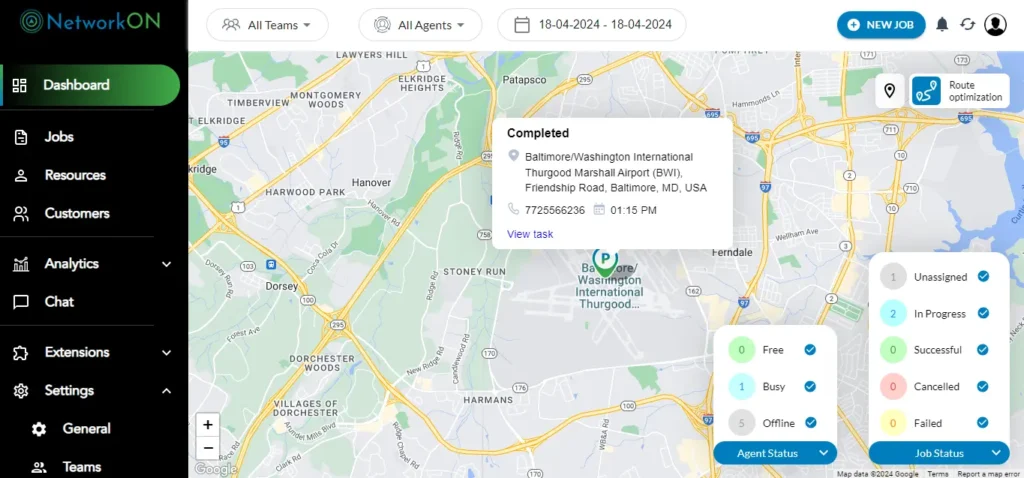
The final stretch of the delivery process, commonly known as last-mile delivery, poses some of the most significant hurdles for logistic companies today. This critical phase, between successful order fulfillment and final delivery to the customer’s doorstep, is wrought with challenges. Inefficient last-mile delivery can lead to delays, increased costs, and diminished customer satisfaction, ultimately impacting the logistics provider’s reputation.
Last-Mile Delivery Challenges and Software-Based Solutions
One of the primary concerns in last-mile delivery is the inability to optimize routes effectively. Congestion, unexpected delays, and inaccurate mapping can all result in slower deliveries and higher costs. Fortunately, logistics delivery management software tackles these problems head-on by providing advanced routing algorithms considering constraints such as traffic patterns, delivery windows, and vehicle capacity. This enables more efficient use of resources and ensures timely deliveries.
Another significant challenge is the visibility of the delivery process. With logistics software, all stakeholders have real-time access to tracking information, reducing the uncertainty of delivery timings. This transparency is essential for logistics companies and end customers, who increasingly demand accurate information about their orders.
How Logistics Software Ensures Timely Deliveries and Customer Satisfaction
Ensuring on-time delivery is central to achieving high levels of customer satisfaction, and logistics software plays a pivotal role in making this possible. The software offers features like automated dispatch, which reduces idle time and accelerates the delivery process, and geofencing, which sends alerts when a delivery is about to reach its destination, allowing customers to be prepared to receive their parcels. This level of efficiency and communication is crucial for fostering customer trust and loyalty.
- Route optimization tools to streamline last-mile delivery, reducing transit times and fuel usage.
- Real-time tracking ensures all parties have up-to-date information on delivery statuses, mitigating the risks of missed or delayed deliveries.
- Customer communication channels within the software improve the delivery experience by keeping the customer informed and engaged.
- Data analytics to reflect on performance and identify opportunities for further improvement in the last-mile logistics chain.
The Evolution of Transportation Management Systems (TMS)
Transportation Management Systems (TMS) have become a modern logistics and delivery management cornerstone. Their ongoing development has transformed the transportation sector, enabling companies to gain unprecedented control over their shipping operations. The efficiency and visibility advanced TMS provides become indispensable components in the quest for logistical excellence.
The Role of TMS in Modern Logistics and Delivery Management
The introduction of TMS has played a pivotal role in how companies approach their logistics strategies. By integrating all facets of transportation planning and execution, TMS allows for a more cohesive and streamlined process. Crucial elements such as route planning, freight auditing, and payment processing are more effectively managed, leading to cost reductions and improved delivery timelines.
How TMS is Revolutionizing Transportation Workflows
Today’s TMS solutions go beyond basic functionality, harnessing data analytics and real-time tracking to revolutionize transportation workflows. The ability to anticipate and respond to dynamic supply chain conditions has made TMS an invaluable asset for mitigating risks and enhancing customer satisfaction. With features like automatic carrier selection, load optimization, and precise tracking of shipments, TMS is redefining the standards of efficient transportation.
- Tracking and visibility features ensure real-time updates and proactive management of potential delays.
- Integration capabilities allow TMS to work with other software systems, providing a holistic view of the supply chain.
- Advanced reporting tools deliver insights for continuous optimization and cost savings strategies.
Prioritizing Security in a Digital World
In the ever-evolving landscape of digital logistics, the importance of robust security measures cannot be overstated. Logistics delivery management software is no exception, playing a pivotal role in protecting critical information against cyber threats. Ensuring compliance and implementing comprehensive security protocols is paramount to maintaining the integrity and efficiency of the delivery management process.
Compliance and Security in Logistics Software and Its Importance
Adherence to legal and regulatory standards in logistics software is crucial for businesses that want to remain credible and protect their operations from fines and legal repercussions. Compliance ensures that software solutions are up-to-date with the latest security practices, thus safeguarding data and streamlining logistics operations within the bounds of the law.
Protecting Sensitive Data and Maintaining Trust with Secure Software Solutions
Protecting sensitive data is at the heart of logistics delivery management software. Security measures must be rigorous and dynamic with the consistent flow of confidential information such as shipment details, customer data, and transaction records. Clients entrust their data to logistics companies, expecting their information to be handled securely and carefully. Building and maintaining this trust is not just a promise but an ongoing commitment that must be validated by deploying secure software solutions prioritizing data protection at every level.
- Encryption: Encrypting data to ensure that it remains confidential during transmission and storage.
- Access Controls: Strict access controls prevent unauthorized users from reaching sensitive data.
- Regular Audits: Conducting regular audits to guarantee compliance and continually enhance security protocols.
- Security Training: Regular staff training on security best practices to minimize human error and improve overall security culture.
- Disaster Recovery Plans: Implementing disaster recovery plans to ensure business continuity during a data breach or loss.
The Automation Advantage in Logistical Deliveries
Automation has revolutionized the way logistics companies approach delivery management. By integrating intelligent software solutions, businesses can streamline their supply chain processes and significantly enhance efficiency. This transformation in the logistics industry not only boosts productivity but also leads to a tangible improvement in customer satisfaction and profitability.
How Automation in Supply Chain Processes Enhances Efficiency
Automation sets the stage for a more consistent and error-free operation by minimizing manual input and decision-making dependency. Features such as automatic order routing, self-regulating inventory levels, and real-time carrier rate updates ensure a synchronous flow of information and goods. By reducing the scope for human error and enhancing speed, logistics delivery management software with automation capabilities can create a leaner, more responsive, and adaptable delivery network.
Foster Seamless Collaboration and Communication
Logistics delivery management software serves as the nerve center for modern supply chains. A vital feature of this software is its capability to enhance collaboration and communication among all stakeholders involved in The logistics process. This coordination is essential for maintaining efficient operations, reducing errors, and ensuring that goods are delivered successfully.
Real-time Communication between Drivers, Dispatch, and Customers
Perhaps the most critical aspect of this communication is the direct line it creates between drivers, dispatch teams, and customers. Drivers can receive instant updates on delivery schedules or route changes, while dispatchers can easily manage fleet assignments with access to live location data. Furthermore,
- Customers appreciate being in the know with real-time tracking information and estimated delivery times.
- Dispatchers can manage contingencies efficiently, deploying resources where they are most needed.
- Through immediate communication channels, drivers can report their status, get help when needed, and avoid complications on the road.
Implementing logistics delivery management software that prioritizes seamless collaboration and communication is fundamental for businesses looking to excel in a competitive market.
Artificial Intelligence: The Frontier of Logistics Delivery Software
Artificial Intelligence (AI) has emerged as a transformative logistics delivery management software force. By integrating advanced AI capabilities, companies are reaping the benefits of improved efficiency, accuracy, and predictive insights that drive smarter decision-making across the supply chain.
Artificial Intelligence and Machine Learning Applications in Logistics
The application of AI and ML within logistics software spans various facets of the supply chain process. From automated warehouse sorting to dynamic delivery scheduling, AI leverages vast datasets to streamline operations. These intelligent systems analyze historical performance data to optimize inventory levels, prevent stockouts, and predict future demand, ensuring that resources are allocated most effectively.
Predictive Analytics and AI-driven Decision-Making for Optimization
Predictive analytics is one of AI’s most potent offerings in logistics. By harnessing the power of predictive models, logistics delivery management software can anticipate potential delays, forecast demand surges, and prepare for market fluctuations. This foresight empowers businesses to adopt a proactive approach, anticipating challenges and making informed decisions that avoid pitfalls. AI-driven decision-making mechanisms also optimize routes in real-time, considering traffic patterns, weather conditions, and vehicle performance metrics to enhance delivery precision and punctuality.
- Real-time Adaptive Route Planning.
- Advanced Demand Forecasting.
- Automated Carrier Selection
- Enhanced Customer Experience
AI and ML are not just features in logistics delivery platforms but foundational elements that propel the logistics industry into a new era of digital intelligence. Embracing these technologies ensures that businesses stay at the forefront of innovation, delivering unparalleled efficiency and meeting the ever-increasing demands of a rapidly evolving global marketplace.
Cloud-Based Solutions: Accessibility and Reliability in Logistics
Logistics delivery management software has evolved tremendously, with cloud-based solutions paving the way for more accessible and reliable logistics processes. These platforms are designed to meet the demands of contemporary supply chains, providing a robust infrastructure that supports real-time data exchange, enhances business continuity, and ensures seamless operations.
Advantages of Cloud-Based Logistics Solutions for Businesses of All Sizes
Cloud technology is leveling the playing field, allowing businesses of all sizes to benefit from advanced logistics capabilities. Small to medium-sized enterprises can now compete with larger companies by leveraging the scalability and cost-efficiency of cloud-based systems. This has improved customer satisfaction, streamlined operations, and the ability to adapt quickly to market changes.
Software Flexibility and Accessibility in Cloud Deployments
One of the most significant benefits of cloud-based logistics delivery management software is its flexibility and accessibility. Accessible from anywhere at any time, these solutions allow logistics managers and teams to make informed decisions on the go. The logistics chain remains uninterrupted with a reliable Internet connection, ensuring that efficiency and productivity levels are consistently high.
- Enhanced Data Security: Cloud providers utilize cutting-edge security measures to protect sensitive logistics data.
- Automatic Updates and Maintenance: Cloud solutions reduce the need for in-house IT maintenance, as providers handle updates and system upkeep.
- Disaster Recovery and Redundancy: With data stored in the cloud, businesses benefit from built-in disaster recovery strategies, ensuring operations can resume quickly after unexpected incidents.
Cloud-based logistics software has become an indispensable tool for companies aiming to maintain reliability and improve accessibility in their logistics operations. By choosing cloud solutions, businesses are investing in a future-proofed, scalable approach that can support the ever-growing demands of the delivery management landscape.
Key Takeaways
Centralized logistics delivery management software provides businesses with real-time tracking capabilities, offering complete visibility over the delivery process. It enables accurate delivery time estimations, swift issue resolution, and enhanced operational efficiency.
Advanced route planning minimizes delays and efficiency by adapting to traffic conditions, driver availability, and delivery windows. It reduces fuel consumption, lowers emissions, and extends vehicle life.
Efficient order management processes ensure timely deliveries and high customer satisfaction. Automation helps eliminate human errors in order processing and dispatching, streamlining the order-to-delivery pipeline.
Logistics software enhances customer service by providing real-time updates, automated notifications, and transparent tracking information, improving customer satisfaction and loyalty.
Ensuring compliance and robust security measures in logistics software protects sensitive data against breaches, maintains trust, and safeguards operations.
Adherence to industry regulations ensures that logistics operations are within legal bounds, preventing fines and legal repercussions.
Conclusion
Logistics delivery management software has become indispensable for businesses striving to optimize their delivery and supply chains. Throughout this discussion, we’ve explored many ways the right software can revolutionize your operations, from real-time data tracking to efficient route planning. These technologies automate daily tasks and provide actionable customer insights that drive informed decision-making.
As we look to the future, the evolution of these solutions promises even greater efficiencies and capabilities. Sophisticated algorithms for managing logistics, the integration of artificial intelligence, and the widespread adoption of cloud-based platforms suggest a trajectory toward more robust, secure, and user-friendly systems. These advancements foretell a time when logistics software will support and drive business growth.
Firms that have yet to embrace this digital transformation are encouraged to consider the competitive edge that logistics software can provide. The benefits are clear: enhanced communication among drivers and fleet managers, superior inventory and warehouse management, and the ability to scale operations to meet customer demand effortlessly.
Take the Leap into Digital Logistics Excellence and Contact NetworkON to experience the transformative effects of our logistics solutions first-hand. Let us guide you toward a more efficient, insightful, and customer-focused future.
Frequently Asked Questions
How does centralized delivery management software improve operational efficiency?
Centralized delivery management software enhances operational efficiency by providing real-time tracking and visibility over the entire delivery process. It allows businesses to dynamically monitor and optimize delivery routes, swiftly address issues, and make data-driven decisions based on detailed analytics and reporting. Automating key processes reduces human error and accelerates order fulfillment, contributing to a streamlined and efficient logistics operation.
What are the key features to look for in effective logistics delivery management software?
Effective logistics delivery management software should include the following:
Real-Time Tracking: Visibility over deliveries for accurate time estimations and issue resolution.
Route Planning and Optimization: Advanced algorithms to minimize delays and maximize efficiency.
Order Management and Fulfillment: Automated processes for accurate and timely deliveries.
Fleet Management: Tools for vehicle tracking, maintenance scheduling, and fuel consumption monitoring.
Inventory Management: Data-driven control to prevent overstocking and stockouts.
Analytics and Reporting: Detailed performance metrics for data-driven decision-making.
Compliance and Security: Adherence to industry regulations and robust data protection measures.
How does logistics delivery management software enhance customer service?
Logistics delivery management software enhances customer service by providing real-time updates, automated notifications, and transparent tracking information, allowing customers to monitor their orders and receive accurate delivery estimates. This technology fosters better communication between customers, drivers, and dispatchers, ensuring that any issues are promptly addressed and customers are kept informed, leading to higher satisfaction and loyalty.
Why is security and compliance important in logistics delivery management software?
Security and compliance are critical in logistics delivery management software to protect sensitive data such as shipment details, customer information, and transaction records from cyber threats and breaches. Ensuring compliance with industry regulations prevents legal repercussions and fines, maintaining the credibility and integrity of the logistics operations. Robust security measures, including encryption, access controls, and regular audits, build trust with clients and stakeholders, ensuring safe and reliable data handling.
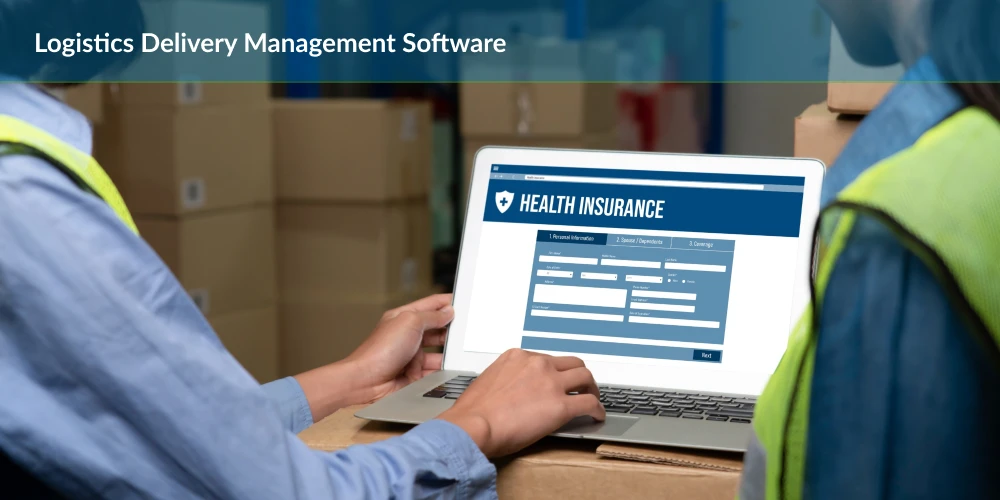



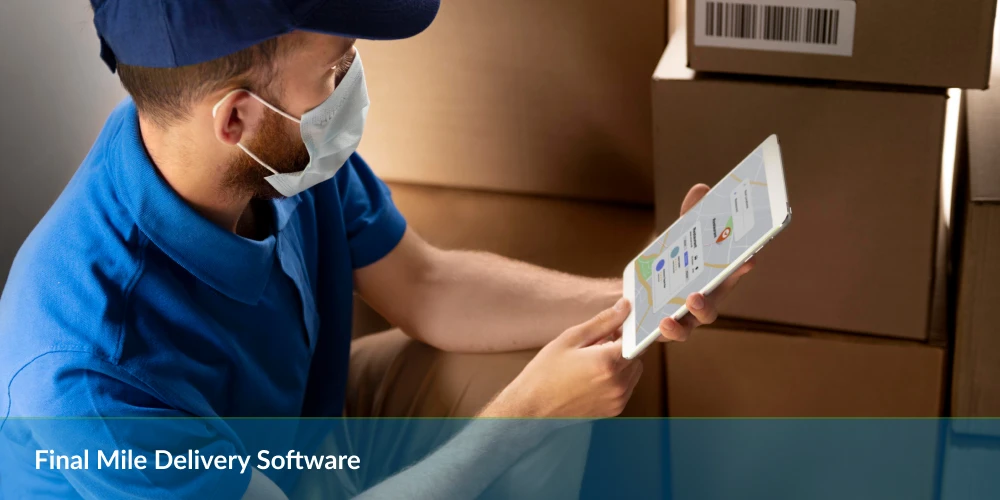
0 Conversations